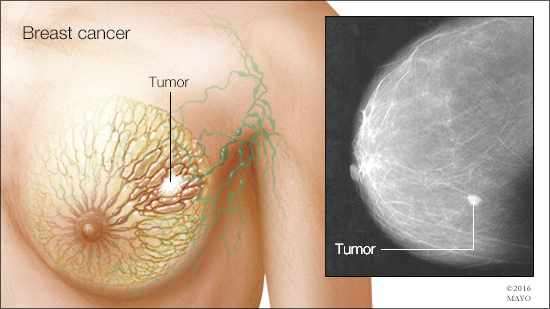Breast cancer study provides critical information on tumor sequencing and chemother

Tumor sequencing is increasingly used to select treatment for patients with cancer, but its role in women with newly diagnosed breast cancer is unknown. Mayo Clinic researchers reported today in the Journal of the National Cancer Institute the results of a prospective tumor sequencing study in women receiving chemotherapy prior to breast surgery. The goal was to determine whether tumor genomic alterations could differentiate patients with chemotherapy sensitive and chemotherapy resistant disease and to generate patient-derived xenografts (mouse avatars) to validate their findings.
"There is great interest to use tumor sequencing data to guide therapy," says Matthew Goetz, M.D., medical oncologist and co-chair of the Breast Cancer Genome-Guided Therapy (BEAUTY) study. "However, there are limited data as to whether this approach is useful in women with newly diagnosed breast cancer who are recommended chemotherapy prior to breast surgery," he added.
The main findings of the BEAUTY study, published today in the online issue of Journal of the National Cancer Institute, demonstrated that the most common genetic changes were not more commonly observed in chemotherapy resistant compared to chemotherapy sensitive tumors. However, Mayo investigators identified that an uncommon type of an aggressive breast cancer, the luminal androgen receptor subtype of triple negative breast cancer (TNBC), was less likely to respond to chemotherapy, and was more likely to contain a unique type of mutation in p53, a tumor suppressor gene commonly mutated in TNBC.
"The long-term goal of the BEAUTY study is to enable individualized treatment for each woman with breast cancer by using the genetic information found in blood samples and tumor biopsies to select the most effective therapies," says Judy Boughey, M.D., breast surgeon and co-chair of the BEAUTY study.
According to Dr. Boughey this study was an important step in that direction. A major goal towards more personalized therapies is the development of new cancer models to test the efficacy of new treatments before they are tested in patients. In the BEAUTY study, Mayo researchers used core needle biopsies of the original tumor and successfully "immortalized" breast cancer cells into mouse avatars in more than 50 percent of patients with TNBC.
"The simultaneous generation of avatars and tumor sequence data from patients that did not respond to chemotherapy has allowed our research team to prioritize the selection of the new agents to study in the laboratory," say Dr. Goetz.
"Using the data generated from this study, the Mayo BEAUTY team will launch a successor study bringing forward new drugs to women with chemotherapy resistant tumors", added Dr. Boughey.
The research team's goal is to bring forward the most promising drugs to patients who have tumors resistant to current therapies.
As a result of the study researchers now know that:
- The most common and recurrent genomic alterations observed in the BEAUTY study were equally as likely to be observed in patients that responded to chemotherapy as those that did not respond.
- Many uncommon genomic alterations were observed, and much larger studies will be needed to determine whether these unique alterations identify groups of women more or less likely to respond to chemotherapy.
- The development of patient derived xenografts using needle biopsies from the primary breast tumor prior to surgery is feasible, and the "avatars" that were developed in both patients that did and did not respond to chemotherapy are a powerful tool for studying new therapeutic strategies.
According to Keith Stewart, M.B., Ch.B., Carlson and Nelson Endowed Director, Mayo Clinic Center for Individualized Medicine, cancer patients have benefitted from Mayo Clinic research, integration and application of new therapies targeted to their individual genetic mutations.
"Our research in precision medicine allows us to develop personalized solutions to diagnose patients sooner, provide safer drug therapies and customize treatment plans based on a patient's individual genetic code" says Dr. Stewart, the Vasek and Anna Maria Polak Professor of Cancer Research.
More information: Matthew P. Goetz et al. Tumor Sequencing and Patient-Derived Xenografts in the Neoadjuvant Treatment of Breast Cancer, JNCI: Journal of the National Cancer Institute (2017). DOI: 10.1093/jnci/djw306

















